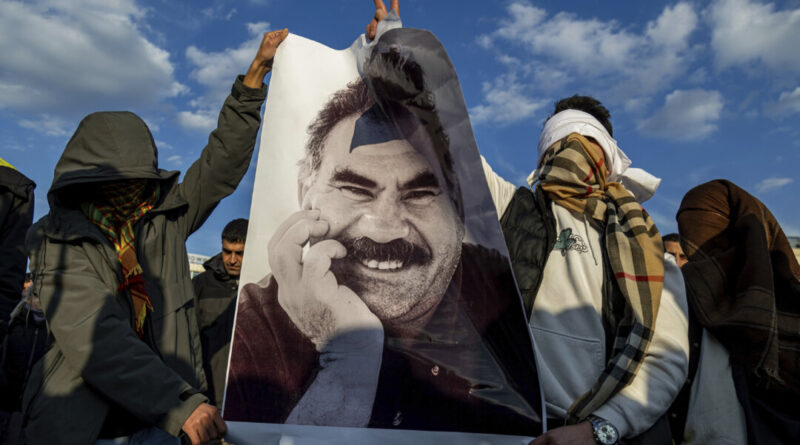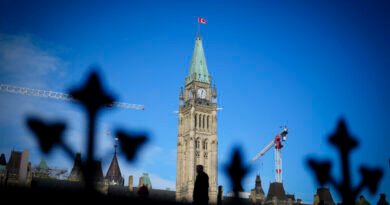PKK Leader Ocalan Calls for Ceasefire and Disbandment of Terrorist Group
Abdullah Ocalan acknowledged that the PKK had reached its end and that advancements in freedom of expression had eroded its core significance.
The imprisoned leader of the Kurdistan Workers’ Party (PKK), Abdullah Ocalan, issued a plea on Thursday for the terrorist organization to disarm and disband.
Speaking from his confinement on Imrali island near Istanbul, the 75-year-old Ocalan urged the PKK to convene a congress and officially dissolve.
“Similar to other modern communities and parties that have not been forcefully terminated, call for a congress to voluntarily merge with the state and society and make a decision,” Ocalan stated. “All factions must lay down arms and the PKK must disband itself.”
The announcement was delivered on television by a representative of the Peoples’ Equality and Democracy Party (DEM), a pro-Kurdish political party in Turkey.
“During the 1990s, following the collapse of real socialism due to internal factors, the acknowledgment of Kurdish identity in the nation, and enhancements in freedom of speech, led to a decline in the essential relevance of the PKK, resulting in excessive redundancy,” Ocalan remarked. “Consequently, it has reached its conclusion like its equivalents and necessitates dissolution.”
Ocalan established the PKK, rooted in Marxist ideology, in 1978 to initially seek the creation of a Kurdish state in the area. Over time, the group shifted its stance to advocate for Kurdish autonomy in southeastern Turkey.
In 1999, Ocalan was apprehended in Kenya by Turkish security forces and has since been detained at Imrali.
Ankara, Brussels, London, and Washington all designate the PKK as a terrorist organization.
Thousands of individuals have lost their lives in clashes between the PKK and the military in southeastern Turkey since the 1980s.
In October 2024, Devlet Bahceli, leader of the Nationalist Movement Party and President Recep Tayyip Erdogan’s coalition partner, proposed the possibility of granting Ocalan parole if the PKK renounced violence and disbanded.
In his address, Ocalan commented, “The call made by Mr. Devlet Bahceli, in conjunction with the intentions expressed by Mr. President, and the favorable responses from other political parties to the aforementioned call, has fostered an environment where I am appealing for disarming, undertaking the historical responsibility of this plea.”
In October 2024, PKK militants launched an assault on a Turkish defense firm’s headquarters in Ankara, resulting in at least five fatalities, including the alleged attackers.
In response, the Turkish Air Force targeted PKK positions in northern Iraq, where the group is headquartered, as well as in Syria, where a related group—the YPG—holds a significant presence.

Turkish soldiers close to the Turkey-Syria border near Reyhanli, Hatay, Turkey, on Oct. 10, 2017. Ilyas Akenga/AFP/Getty Images
Since last year’s local elections, eight DEM Party-affiliated mayors in eastern Turkey, where Kurds constitute a significant portion of the population, have been ousted from office following convictions related to terrorism.
The PKK purportedly garners support from Kurdish expatriates residing in various European nations.
‘Historic, Powerful’
Ocalan’s declaration was hailed as a historic and influential gesture by Hoshyar Zebari, an Iraqi-Kurdish politician who previously served as Iraq’s foreign minister from 2003 to 2014.
Zebari, whose Kurdistan Democratic Party has maintained positive ties with Ankara over the years, commended the timing of the statement, affirming its potential impact in northeastern Syria, Iraqi Kurdistan, and Turkey.
Hundreds of residents in the Kurdish-majority city of Qamishli in northeastern Syria took to the streets in jubilation over the statement, hoping it would signify the cessation of conflict between the Kurdish-led Syrian Democratic Forces (SDF) and Turkish-aligned factions in Syria.

A youth holds a flag with the image of Abdullah Ocalan, the jailed leader of the Kurdistan Workers’ Party, in Istanbul, Turkey, on March 21, 2018. Lefteris Pitarakis/AP
An estimated 15 million Kurds reside in Turkey, yet they are not recognized as a distinct ethnic minority.
Additional millions are dispersed across northeastern Syria, northern Iraq, and northwestern Iran, as well as in Germany, Britain, and other European countries.
Following the ousting of Iraqi dictator Saddam Hussein in 2005, Iraqi Kurdistan was declared a federal entity within Iraq under a new constitution, with Kurdish designated as the sole official language.
The Associated Press and Reuters contributed to this report.




